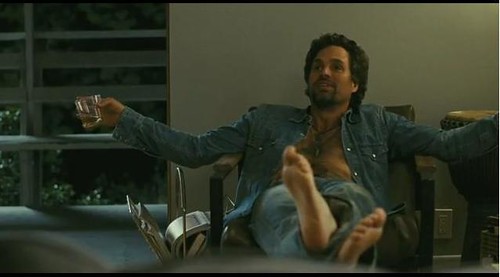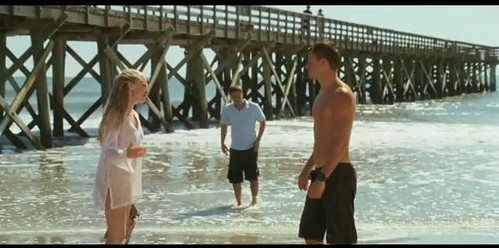| Thursday, December 30, 2010. Chaos and violence continue, Iraqi Christians continue to be targeted, Kurdistan beefs up security ahead of New Year's Eve, IVAW announces a February event, and more. December 25th, KRG President Masoud Barzani issued the following statement, "I would like to reiterate the importance of peaceful co-existence and religious tolerance in Iraq and call on the federal government to make the protection of Christians and religious sites a priority. We will always defend the rights of the Christian community and we repeat that the Kurdistan Region is open to embrace the displaced Christians." It's a fairly clear statement. And Christmas did take place, was publicly celebrated in the KRG. They beefed up security, there were no known attacks on Iraqi Christians. Nathan Deuel (Daily Beast) reported from Erbil, "It's Christmas morning in northern Iraq, and the parishioners of St. Joseph's Church are emerging from their homes into the bright desert sunlight. With two Iraqi friends, I drive along narrow avenues decorated with twinkling lights and the occasional inflatable Santa. We pass a clutch of men wearing bright sweaters, pressed slacks, and loafters. A trio of women breaks into tight smiles; one is wearing a red skirt with a band of white snowflakes. We round the corner, and we're surprised to see that a shimmering tanker truck is blocking the road to the church. Frowning men in uniform wave their arms. As one of the largest Christian centers of worship in Erbil, the capital of the Kurdish autonomous zone in northern Iraq, the church is a potential target. We're urged to park down the block. But high security is better than nothing at all." How is Barzani able to do to that over three provinces and Nouri can't even secure the city of Baghdad? In what world does that make sense? Janet Ritz (Huffington Post) interviewed Qubad Talabani, the KRG's US representative and the son of Iraqi President Jalal Talabani. Excerpt: In Iraqi Kurdistan, nationalism is the common belief in a distinctly pluralistic society where the Kurds have opened their gates to Iraqi Christians seeking refuge from extremist violence. "We've had this welcoming policy [to Iraqi Christians];" Mr. Talabani explains; "we've probably settled in Kurdistan 12,000 to 15,000 Christian families and, regrettably, hundreds of thousands have left Iraq altogether. Those who've chosen not to leave Iraq have resettled in Kurdistan." They've shown the same tolerance toward other religious minorities. Problems, when they do arise, are cultural in nature. Mr. Talabani was candid about the challenges faced by women in their rural regions, with crimes of honor killings and female genital mutilation, on which, he said, Kurdistan, unlike other parts of the Middle East, reports and has begun work to stop. It won't be easy. In the male dominated culture that exists in the rural areas, he points out that it will take religious leaders and village elders to change the practices. There's been some progress in those efforts, including a statement by the Kurdish Islamic authority to condemn the practices, but, as he said, "we can't shy away" from the problem. There's more work to be done. Long targeted throughout the endless and illegal Iraq War, Iraqi Christians have faced a new wave of persecution which began October 31st with the attack on Our Lady of Salvation Church in Baghdad. Attacks have continued in Baghdad and Mosul forcing many Iraqis to flee. Some have gone to the KRG, others have left the country. J. Lee Grady ( Charisma) looks back at the " Top Spiritual Trends of 2010" and notes, "The Open Doors organization says the 'religicide' of Christians in Iraq today is similar to what happened to Iraqi Jews in 1941." Maria Mackay (Christian Today) reports: Barnabas Fund recently received a letter from an Iraqi archbishop warning that Christians were too afraid to leave their homes. The very real threat of being killed in broad daylight is making it difficult to do the very practical things like shopping and, more importantly, going to work. The international director of Barnabas Fund, Dr Patrick Sookhdeo, said: "It is like living in a prison camp. You could leave the house but you don't know what is going to happen. Because of the targeted attacks, there is a chance that Christians venturing out to work or onto the streets will be attacked or killed. The fear is effectively leaving Christians stranded in their homes." Sunday AFP reported, "Iraqi Christians who survived the deadly storming of a Baghdad church attended a special Christmas mass on Sunday in France, where they were evacuated following the attack. [. . . Elish] Yako said at least five of the wounded have returned from France to Iraq and six are still in hospital, while others have applied for asylum. France has said it also plans a second evacuation flight for a further 93 Christians." Nick Vinocur (Reuters) reports on the sour grapes of Iraqi Refugee Assistance Project (the lack of leadership currently at that organization was never more obvious) and the UNHCR over France taking in victims ofthe October 31st attack. The two go down to the whine cellar and emerge with a chardonnay of green-eyed bitchery. Bitter Becca Heller, IRAP, whines that it's just not fair to everyone that France took in Iraqi Christians. Grow the hell up. A spectacular attack on a house of worship resulted in France offering medical help and asylum. It's not at all surprising, it's not 'discriminatory' towards others. It was spectacular attack like nothing anyone was prepared for or expected. France's offer was not at all different from those reaching out to the victims of Hurricane Katrina. Little whiny asses need to stop their carping. Instead of whining over what someone else did, maybe the two organizations might try doing something of their own. Because what the world's seeing is the United Nations repeatedly stating that it is not safe to return to Iraq but unble to halt the forced deportations of Iraqi refugees in Europe back to Iraq. And IRAP? The US-based organization has had no impact on US policies. So instead of whining over what the government of France did -- a noble thing to reach out to any community after an attack -- the two organizations might try sobering up, rolling up their sleeves and getting to work on a real issue. Monday Reuters reported a Dujail roadside bombing claimed the life of 1 "Christian woman and wounded her husband." That alone makes Becca Heller and company look like idiots but why stamp a fool with "IDIOT" on the forehead just once when you can do so repeatedly? BBC News reports that Baghdad was slammed with bombings targeting the homes of Iraqi Christians today leaving 2 people dead and fourteen wounded. Michael Christie and Matthew Jones (Reuters) note the number injured has risen to "at least 16" and note "Iraqi Christian leaders say they fear Sunni Islamist al Qaeda wants to drive them out of the country." David Batty (Guardian) offers this perspective, "The grenade and bomb attacks came a week after Islamist militants linked to al-Qaida threatened a wave of violence against Iraq's beleaguered Christian community." Xinhua adds, "The attacks occurred in different parts of Baghdad at night, the first roadside bomb exploded near the house of a Christian in the Ghadeer neighborhood southeast Baghdad, killing two and wounding three, the source told Xinhua on condition of anonymity. Al Jazeera notes, "Al Jazeera's Rawya Rageh reports from Baghdad that the ten explosions took place outside as well as in the yards of Christian homes across Baghdad. She said the attacks were 'not simultaneous but clearly appeared to be coordinated'. The attackers used a combination of grenades and simple homemade bombs. In at least two cases, police arriving on the scene found additional unexploded bombs." Jacques Clement (AFP) reports, "The attacks started at 7:30 pm and continued over two hours in six different parts of the capital as the Christian community still reels from a massacre at a Baghdad cathedral on October 31 in which 44 worshippers and two priests died." BBC News provides this analysis: "The BBC's Jim Muir in Baghdad said the bombs were not big by Baghdad standards, but the message was clear. He says that the Islamic militant group affiliated to al-Qaeda which said it carried out the deadly attacks in October had warned that there would be more to come." John Leland and Omar al-Jawoshy (New York Times) quote Noor Isam stating, "We will love Iraq forever, but we have to leave it immediately to survive. I would ask the government, 'Where is the promised security for Christians'?" Yeah, where is that security? Why is it so difficult for Nouri to deliver on what he promised? Especially when Baghdad's been walled off into sections and checkpoints? (Checkpoints Nouri's considering eliminating.) In other violence, Reuters notes a Baghdad rocket attack left three people injured and that 1 man was shot dead at his Kirkuk home. Yesterday, Saman Basharati (Rudaw) reports that 1,000 peshmerga (Kurdish forces) have been sent to the city due to rumors "of a military coup" and "This is the first time since 2003 that a top Kurdish official has acknowledged the threat to Kurdish politicians of a military coup." Today Shamal Aqrawi (Reuters) reports that security is being beefed up in Kurdistan ahead of New Year's Eve out of concern that attacks may be planned, " It remained an oasis of relative calm while the rest of Iraq descended into sectarian bloodshed after the 2003 U.S.-led invasion. There are few blast walls protecting buildings from bomb attacks and residents can stay out after dark and frequent restaurants and clubs. It has become a gateway to investing in Iraq, with shopping centres, hotels and a booming real estate sector." Meanwhile the conflicts between Iraq's neighbors Iran and Saudi Arabia continue as Iran's state-run outlet Press TV works overtime to encourage a Shi'ite - Arab split. Press TV reports that Fawzi Tarzi, a Moqtada al-Sadr acolate, is isnisting that Saudi Arabia supports terrorism in Iraq and quotes the Iraqi National Alliance's Mohammed Hussein stating, "We should seal our borders with Saudi Arabia to hold the flow of terrorism." And Iran's state-run media also serves up Wisam al-Bayati (link has text and video) with the assertion that Saudi Arabia is "snubbing" Iraq's government out of Baghdad because many in it are Shi'ite. February 25, 2011 9:30-10:30 am Busboys & Poets, Langston room 14th & V st NW Washington DC This report back will be to answer questions from media and the peace movement about the recent trip back to Iraq by members of Iraq Veterans Against the War. The war is not over but it is not the same as it was in years past. What is the humanitarian situation in Iraq? How can we do reparations and reconciliation work? Speakers are all returning from this delegation and include: Geoff Millard (IVAW) Hart Viges (IVAW) Haider Al-Saedy (Iraqi Health Now) Richard Rowely (Big Noise Films)
Meanwhile two papers weigh in that the US needs to leave Iraq. The editorial board of the Orange County Register argues, "We argued from the beginning, nearly eight years ago, that the invasion of Iraq was a mistake, and the prolonged U.S. occupation seems to have led to an Iraq that is more shaky than stable and has serious tolerance problems, leading, for example, to most Iraqi Christians fleeing the country. For better and for worse, however, it is time to allow Iraqis to handle these Iraqi problems. The U.S. should continue to withdraw troops on schedule and allow historians of the future to weigh the pluses and minuses of our misadventure in Iraq." The Pensacola News Journal's editorial board opines, "Frankly, we figure the future of Iraq lies in an increasingly authoritarian government that, while mild by Middle East dictatorship standards, will hopefully also be reasonably secular and relatively democratic. Meanwhile, the terrorists will continue to set off bombs, the Shiites and Sunnis will continue to scratch and claw for power, and the Kurds will try to stay out of it under independent governance. For the United States, the best outcome will be if Iraq keeps arm's-length from Iran and succeeds in greatly expanding oil exports, which frankly we believe was the point all along, no matter all the rhetoric we were spoon fed about spreading democracy, etc." "We want to end the war now!" hollered Barack Obama to the Cult of St. Barack at the many tent revivals during the 2008 Democratic Party primaries. He used double speak and made promises he had no intention of keeping -- as Samantha Power pointed out to the BBC in March of 2008 -- and he's become the War Hawk Supreme and fraudlent in so many ways. Peace Mom Cindy Sheehan examines who Barack allows redemption for and whom he refuses it to: I believe prisons should be rehabilitative and not punitive, but was justice served and did Michael Vick pay his debt to society for his horrendous crimes? Is he redeemed? Of course, what he did was heinous and inhumane and thinking about it fills me with disgust, but our president is not similarly conflicted. On Sunday, from Hawaii, Obama reportedly called Jeffrey Lurie, owner of the Eagles and huge donor to Barack Obama and other Democrats to "thank" him for giving Vick a "second chance." Hmmm -- "Second chances" are almost miraculous for some people and impossible for others. One similar call could take Mumia off of death row, or pardon railroaded defense attorney, Lynne Stewart, or get Pvt. Bradley Manning out of his inhumane imprisonment (this list could fill a book, I am afraid, so I'll stop now). Also, a study by the Independent Committee on Reentry and Employment, for example, found that up to 60% of ex-cons in New York was still unemployed one year after release. Stats on this are difficult to find, like most statistics on unemployment (which only count those that are receiving unemployment checks, or applying for them), but I am almost 100% sure that 100% of the 60% are not Michael Vicks or fictional, Gordon Gekkos, looking for multi-million dollar salary scores after incarceration. Most certainly, many of these "ex-cons" looking for work didn't commit as heinous of a crime as Vick did, either, but that's something we can only speculate on. With the U.S. humbled in Iraq, mired in Afghanistan and in danger of being drawn into Iran, is it time to replace aggression with development and firepower with solar power? With extremism the new enemy, what's our best defense? What if the U.S. projected its power by defending against the indignities of energy poverty and illiteracy? Absent a strategy for addressing the roots of human indignity, it's not clear that the war on terrorism can be won. Energy poverty is a war we know how to win. Parents of children using solar-powered LED lights report how their grades improve when they have light for studying. While that's not enough, it's a good start. Can the U.S. afford not to embrace a solar defense? If not literacy, what is the best long-term defense against extremism? For $12, a solar-powered LED system can power a desk lamp and a phone charger. | 



No comments:
Post a Comment